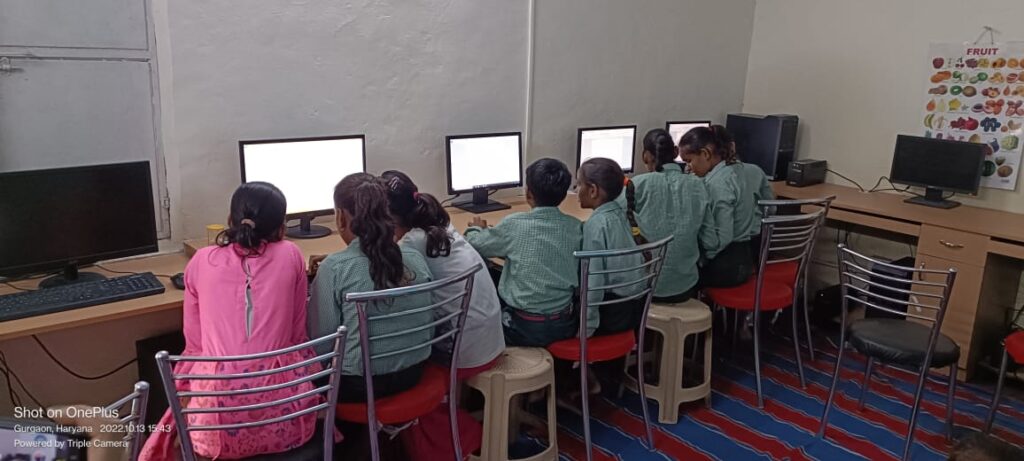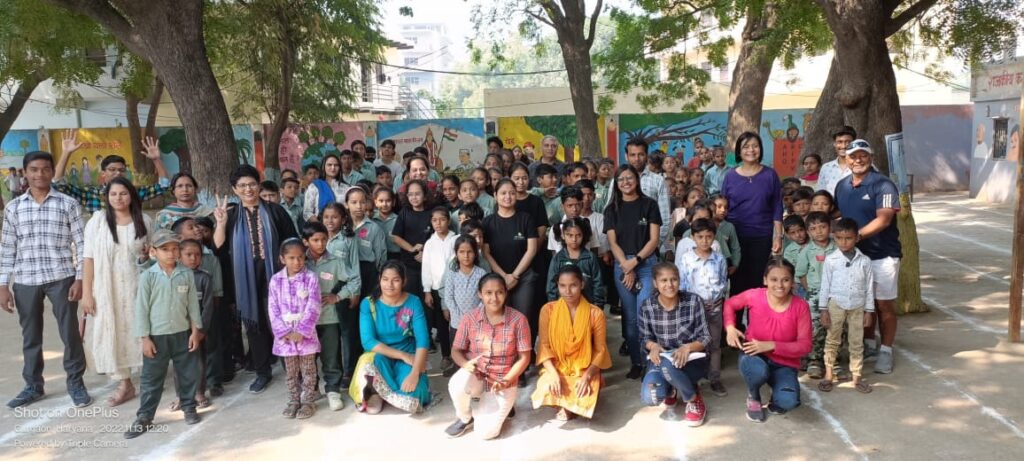
Empowering the Future: How Computer Literacy Programs are Changing the Lives of Underprivileged Youth
In today’s digital age, computer literacy has become an essential skill for success in various aspects of life. From education to career opportunities, the ability to navigate and utilize technology is crucial. Unfortunately, underprivileged youth often lack access to technology and computer literacy programs, creating a digital divide that hinders their chances of success. This article will explore the importance of computer literacy programs for underprivileged youth and how they can bridge the gap, empower youth, provide career opportunities, foster collaboration, and help overcome adversity.
Key Takeaways
- Computer literacy programs are crucial for underprivileged youth to bridge the digital divide.
- These programs empower youth by boosting their confidence and self-esteem.
- Computer literacy programs prepare youth for future career opportunities.
- These programs foster collaboration and teamwork, building a sense of community.
- Continued support for computer literacy programs is essential for changing the lives of underprivileged youth.
The Digital Divide: How Lack of Access to Technology Affects Underprivileged Youth
The digital divide refers to the gap between those who have access to technology and those who do not. Unfortunately, underprivileged youth are disproportionately affected by this divide. According to statistics, a significant number of underprivileged youth lack access to computers and the internet at home or school. This lack of access severely impacts their education and career opportunities. Without the necessary technology skills, these youth are at a disadvantage in a world that increasingly relies on digital literacy.

The Benefits of Computer Literacy Programs for Underprivileged Youth
Computer literacy programs play a vital role in empowering underprivileged youth by providing them with the necessary skills to succeed in today’s digital world. These programs offer numerous benefits, including improved academic performance. By incorporating technology into their learning process, students can enhance their understanding of various subjects and develop critical thinking skills.
Moreover, computer literacy programs open up a world of job opportunities for underprivileged youth. In today’s job market, many positions require basic computer skills, such as word processing and data entry. By equipping these youth with computer literacy skills, they become more employable and have a better chance of securing stable employment.
Additionally, computer literacy programs enhance communication and collaboration skills among underprivileged youth. Through group projects and online platforms, these programs encourage teamwork and teach students how to effectively communicate and collaborate with others. These skills are essential in the workplace, where collaboration and effective communication are highly valued.
Bridging the Gap: How Computer Literacy Programs are Closing the Digital Divide

The role of government and private organizations is crucial in bridging the digital divide. Governments can allocate funds to support computer literacy programs in underprivileged areas, ensuring that all youth have access to technology. Private organizations can also contribute by providing financial support, donating computers, or offering mentorship programs.
Empowering Youth: How Computer Literacy Programs are Boosting Confidence and Self-Esteem
Confidence and self-esteem are essential for success in any field. Computer literacy programs play a significant role in boosting these qualities among underprivileged youth. By acquiring computer skills, these youth gain a sense of accomplishment and self-worth.
Computer literacy programs provide a safe space for underprivileged youth to explore their potential and discover their talents. Through hands-on learning experiences and mentorship, they gain confidence in their abilities. This newfound confidence extends beyond technology skills and positively impacts other areas of their lives.
Career Opportunities: How Computer Literacy Programs are Preparing Youth for the Future Workforce
The technology industry offers a wide range of career opportunities, and computer literacy programs play a crucial role in preparing underprivileged youth for these jobs. With the rapid advancement of technology, there is an increasing demand for individuals with computer skills.
Computer literacy programs equip underprivileged youth with the necessary technical skills to pursue careers in fields such as software development, data analysis, and digital marketing. By providing training in coding, programming, and other relevant skills, these programs ensure that underprivileged youth are not left behind in the job market.
Building Community: How Computer Literacy Programs are Fostering Collaboration and Teamwork
Collaboration and teamwork are essential skills in today’s workplace. Computer literacy programs play a significant role in fostering these skills among underprivileged youth. Through group projects, coding challenges, and online platforms, these programs encourage collaboration and teach students how to work effectively as part of a team.
By working together on projects, underprivileged youth learn how to communicate their ideas, listen to others’ perspectives, and solve problems collectively. These skills not only benefit them academically but also prepare them for future careers where teamwork is crucial.
Overcoming Challenges: How Computer Literacy Programs are Helping Youth Overcome Adversity
Underprivileged youth face numerous challenges that hinder their chances of success. Computer literacy programs play a vital role in helping these youth overcome adversity and break free from the cycle of poverty.
One of the challenges faced by underprivileged youth is limited access to educational resources. Computer literacy programs provide these youth with access to technology and online learning platforms, enabling them to expand their knowledge and skills beyond what is available in their immediate environment.
Another challenge is the lack of role models and mentors. Computer literacy programs often incorporate mentorship components, where successful professionals in the technology industry guide and inspire underprivileged youth. These mentors provide guidance, support, and motivation, helping youth overcome obstacles and believe in their potential.

The Role of Nonprofits and Community Organizations in Providing Computer Literacy Programs
Nonprofit and community organizations play a crucial role in providing computer literacy programs for underprivileged youth. These organizations understand the importance of bridging the digital divide and work tirelessly to ensure that all youth have equal access to technology and computer literacy training.
Numerous nonprofit organizations focus on providing computer literacy programs in underprivileged communities. They partner with schools, community centers, and other organizations to offer resources, training, and mentorship to underprivileged youth. These organizations rely on donations, grants, and volunteers to sustain their programs and make a difference in the lives of underprivileged youth.
Individuals can support these organizations by volunteering their time, donating computers or funds, or spreading awareness about the importance of computer literacy programs. By supporting these organizations, individuals contribute to closing the digital divide and empowering underprivileged youth.
The Importance of Continued Support for Computer Literacy Programs for Underprivileged Youth
Continued support for computer literacy programs is crucial to ensure that all underprivileged youth have equal access to technology and the skills necessary for success in today’s digital world. By supporting these programs, individuals can make a difference in their communities and contribute to a more inclusive and equitable society.
It is our collective responsibility to ensure that underprivileged youth have the same opportunities as their more privileged counterparts. By investing in computer literacy programs, we invest in the future of these youth and empower them to reach their full potential. Let us join hands and support these programs in our communities, bridging the digital divide and creating a brighter future for all.


